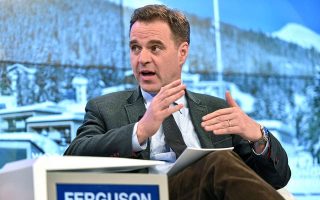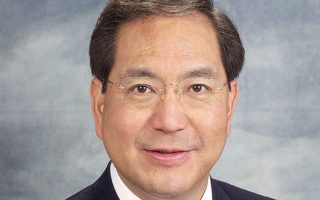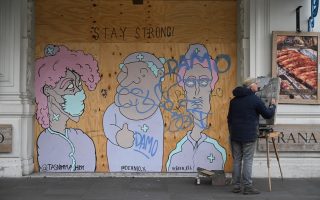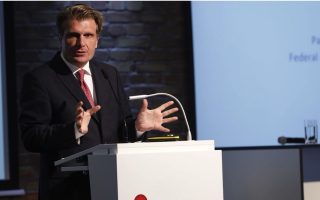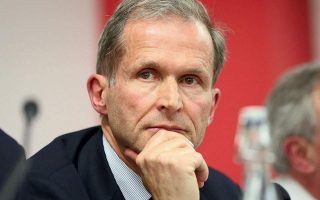Yale’s Frank Snowden on how this pandemic, like others, is changing history
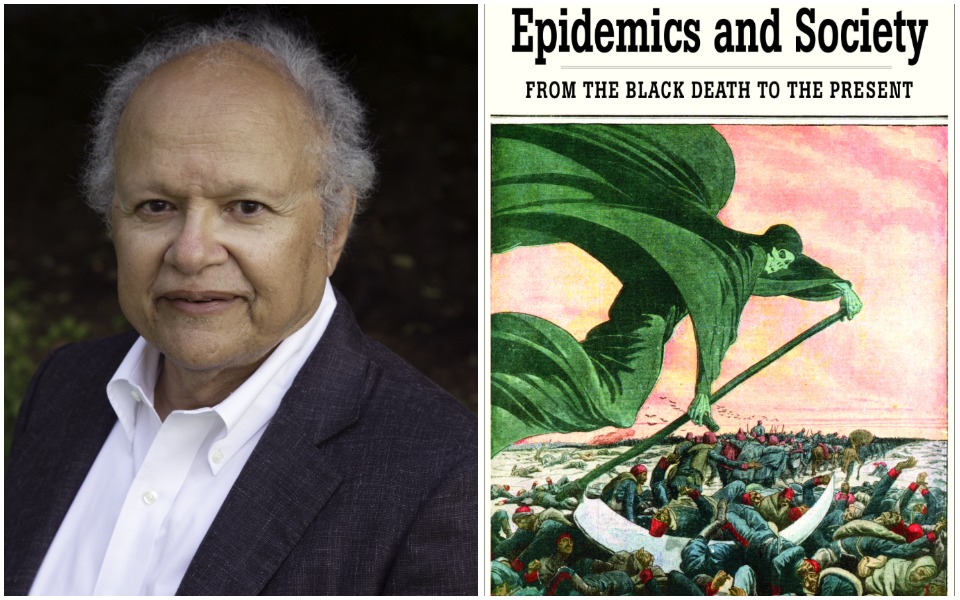
If 2020 had been coronavirus-free, it would have been difficult to envision a Donald Trump defeat or to see the global economy operating under strict statist control fueled by printed money. These are only two developments that are bound to cause a kind of lasting change that has not yet been fully realized.
It’s not the first time this has happened. Indeed, history-altering epidemics have been the norm throughout the centuries. Without epidemics Napoleon could have established a long-lasting French-speaking global empire, Constantinople would have been strong enough to effectively fight off the Ottomans in 1453, and even the ancient city-state of Athens could have been transformed into an empire that could have reigned over the Mediterranean, and even Europe, for centuries.
Back to 2021: The world as it was just a year ago has been profoundly changed by the coronavirus pandemic. But how far-reaching will this change be? From today’s focal point, can we contemplate the shape of a post-Covid world? Yale University professor of history Frank Snowden’s book “Epidemics and Society: From the Black Death to The Present” was published in early 2020, just before the coronavirus outbreak. In it, he outlines the remarkable changes various epidemics have brought about in the human experience, culture and politics. The Greek edition of “Epidemics and Society” will be published in May 2021, by Patakis Editions.
In this interview with Kathimerini, Professor Snowden contemplates the effect of the virus on world affairs and describes the shape of things to come.
Trump’s defeat
Without the coronavirus, could Trump have been re-elected, reaffirming the politics of the populist, “America First” movement that swept the US over the last four years, creating tensions and almost upending the post-WWII consensus in the western world? Professor Snowden is remarkably straightforward in his response: “The impact of the pandemic on the presidency of Donald Trump has been fundamental. Indeed, my view is that – without Covid-19 – he would have been successful in his bid for re-election.”
Snowden’s analysis of the causes that led to the rise of Trump is worth considering before we look into the causes of his fall. “As an exemplar of nationalistic, right-wing populism, Trump won power in 2016 and built a broad following by appealing to the grievances and insecurities of large swathes of the electorate. His supporters included workers angered by the impact of globalization, immigration, and the perceived threat of unemployment caused by the transition from reliance on fossil fuels.” Snowden focuses on four fundamentals that define the mind-frame and belief system of many Americans: whiteness, Christianity, patriotism and anti-elitism. “Millions of white Americans felt themselves overtaken in their quest for the ‘American dream’ by the advancement of Hispanics, Asian-Americans, and by the demands of African Americans for social justice. Trump also mobilized fundamentalist, evangelical Christians who were alienated by secularization and the legalization of abortion and reproductive rights for women; and he galvanized patriots unwilling to accept a new era of diplomacy based on negotiation and multilateralism rather than unchallenged American military power. He also appealed to those numerous Americans who scorned science, authority, and all intellectual elites.”
On the other hand, there was a growing anti-Trump movement, but it didn’t seem strong enough to overturn the course of Trumpism. Trump had the status of an incumbent president who presided over a strong economy. “As 2020 began, ‘Trumpism’ had given rise to a tenacious and wide opposition. In American history, however, incumbent presidents always have a major advantage in seeking re-election because of their visibility, the appeal of continuity and the resources that holding power provides. Furthermore, the concern at the forefront of voters’ anxieties was the state of the economy, and – in that regard – all seemed to be moving in Trump’s favor. The stock market was rising and employment was surging as a result of the powerful stimulus package that had been enacted by Barack Obama in his second term. There seemed little expectation that the American electorate was likely to overturn Trump when it seemed that he was delivering on many of his promises.”
Enter Covid-19. This was the unexpected variable, the formidable opponent that mercilessly exploited the faults, weaknesses and gaps, the very hubris in the heart of Trumpism and transformed the political situation. The virus proved immune to Trump’s politics based on alternative facts. “Trump’s modus operandi depended on his ability to denigrate, intimidate and delegitimize his political opponents. In the coronavirus, however, he suddenly confronted an adversary that was a force of nature rather than a human rival. His normal strategy of bullying, and presenting his own ‘alternative facts’ proved ultimately of no avail when Covid-19 advanced remorselessly. In so doing, the pandemic exposed Trump’s incoherent response to the crisis, and it generated enormous suffering and death for which he was unwilling to accept responsibility. He also failed to convince the country that he possessed a solution to the greatest medical crisis of the century.”
Apart from exposing Trump’s inability to control the deteriorating medical situation, the virus hit the US economy hard. “For a period, Trump calculated that he could persuade Americans to ignore the disease and keep the economy moving forward. To his endless frustration, however, keeping the economy ‘open’ was impossible when the population was frightened and ever more ravaged by the disease. Nature was not responsive to Trump’s political strategy, and, as an opponent of science, he had no policy to propose except to ignore reality and minimize its importance. Meanwhile, the burden of morbidity and mortality mounted relentlessly, and in its wake followed mass unemployment, rising social inequality, and suffering. The president’s claim to be a powerful and charismatic leader crumbled under the force of a national emergency for which he had no answer.”
The economy
So Trump lost, but when will the economic crisis end? “The nature and duration of the economic crisis triggered by the virus will depend critically on two variables – the manner in which policymakers choose to respond and the success of public health officials in controlling the disease itself. During the first wave in the spring, it seemed to many that there was a simple dichotomy between severe lockdowns on the one hand and reopening the economy on the other. Subsequent upsurges in the summer and autumn demonstrate convincingly that containment of the disease is a prerequisite to economic recovery. If politicians continue to support stimulus programs and a combination of mass vaccination and public compliance with public health structures succeed in containing the pandemic over the course of the spring and summer, a recovery could well begin. Unfortunately, however, the problem is more complex than simple recovery.”
Professor Snowden argues that the pandemic has effectively eroded the foundations of the prevailing economic model. “A lesson emerging from a year of the pandemic is that a simple return to ‘normal’ is neither possible nor desirable. The status quo that existed on the eve of the coronavirus was unsustainable and painfully vulnerable to both economic and medical shocks from readily transmissible pulmonary viruses. In the name of safety and sustainability, therefore, a vital challenge will be to transform the economy – to create what American proponents of such a project term a ‘Green New Deal.’”
As the argument goes, the world needs more immunity against economic, environmental and medical shocks just like the human body needs stronger immunity against novel viruses. Hence, a new model of economics and governance is desperately needed. “In creating a medically, economically and environmentally sustainable economy, nations will not be able to rely on the benign ‘hidden hand’ of classical economics. The unregulated market generates monopoly, waste, social inequality, and inefficiency. Many businesses affected by the pandemic downturn will be permanently destroyed, but there is no inherent reason to expect that those businesses will be economic ‘dead wood’ that needed to be pruned or that the stimulus will cause only viable and useful sectors of the economy to prosper. Recessions are arbitrary and blind to social justice. The economy that emerges from the end of the pandemic will therefore need to be engineered by policymakers committed to furthering sustainability, and it will need to be carefully regulated. It is important, in other words, to regard this pandemic as a portal to a more durable, just and safe society. It is important not to attempt to return to the world that brought us to the brink of collapse.”
Rights and freedoms
But would a more regulated economy go hand in hand with a more regulated society? Civil liberties and individual freedoms have been restricted in a way unimaginable for democratic societies. Do we face the danger that this new model of control over populations will survive after the pandemic is over? Contrary to many others, Professor Snowden does not underestimate such dangers, but, as always, he approaches the problem through the perspective of history.
“There is an important tension between civil liberties and the emergency powers assumed by state authorities during public health crises. The problem is important, but it is far from new. On the contrary, it is as old as public health itself. Centralized authorities with extensive powers to protect the population first emerged with regard to the bubonic plague in Italian city-states like Florence and Venice during the 15th century. In order to protect their communities from sudden and excruciating death, new authorities were created – originally termed ‘health magistrates,’ the predecessors of modern boards or departments of health. They were granted extensive executive and legislative powers to tax, to set up and administer plague hospitals, to institute quarantines, lockdowns, and sanitary cordons; to prohibit public gatherings and mandate social distancing; and to deploy force in the event of noncompliance.
“Then, to combat the Spanish influenza, states added the authority to mandate masking, to enforce coughing and sneezing etiquette, and to close schools, churches and theaters. Thus, the problem of the balance between state power and individual freedom has been with us for centuries. The question whether civil liberties are in danger in times of medical emergencies has arisen repeatedly for centuries. The issue has engendered protest, resistance, law suits and riots.”
Snowden is unequivocal in his belief that in, cases of health emergencies, dissent is unfounded and special measures are justified: “As means of protecting society from sudden and excruciating death and disease the ‘police’ powers of states are vital to our survival. The debate over individual freedom to defy public health mandates such as masking regulations, school closures and vaccination requirements has been decided even in the most liberal democracies by law courts and ethicists. Over the centuries, communities have established the right collectively to protect themselves against the behavior individuals that puts the safety others at risk.”
This is where other academics and politicians end the discussion, but Snowden is one of the few that don’t hesitate to recognize the new dangers lurking at the heart of the special measures taken for combating the coronavirus, the very “temptation” of power to continue applying enhanced control in individual and public life.
“The coronavirus has intersected with novel technologies in ways that are raise fresh questions in an old debate,” he points out. “What is new in the time of Covid-19 is that in some countries the authorities have deployed electronic monitoring devices in ways that George Orwell and Aldous Huxley would have understood. In those places, states have used drones and video cameras to exercise surveillance, have tracked the movements of individuals by employing their cell phones as tracking devices, and have used robots in health centers. Here there are new temptations for authorities to maintain the control, the surveillance, and the invasion of privacy after the emergency has passed. The boundary in these contexts between protecting health and promoting abuse of power is porous and ever shifting as the technology evolves.”
Having said that, what would the solution be if we are to avoid a future that George Orwell and Aldous Huxley warned us against? “Perhaps the solution lies in careful regulation, vigilant oversight by specially appointed public servants accountable to the people, and the ongoing education of citizens in the nature of the technology and the uses to which it can be put. Public health, as the ancients proclaimed, is the highest law, but modern technology means that legitimate uses of electronic devices need to be carefully defined.”
